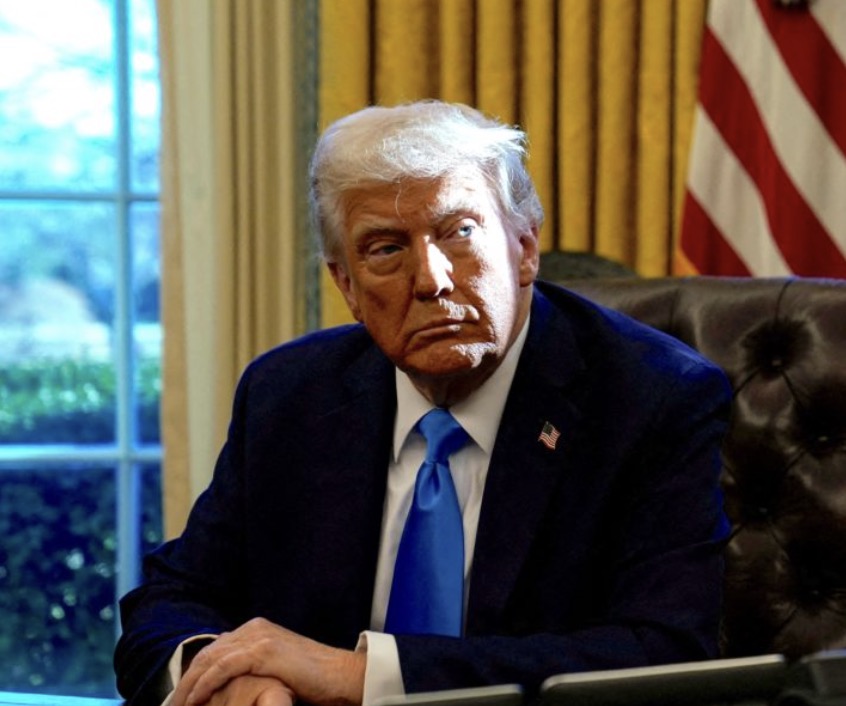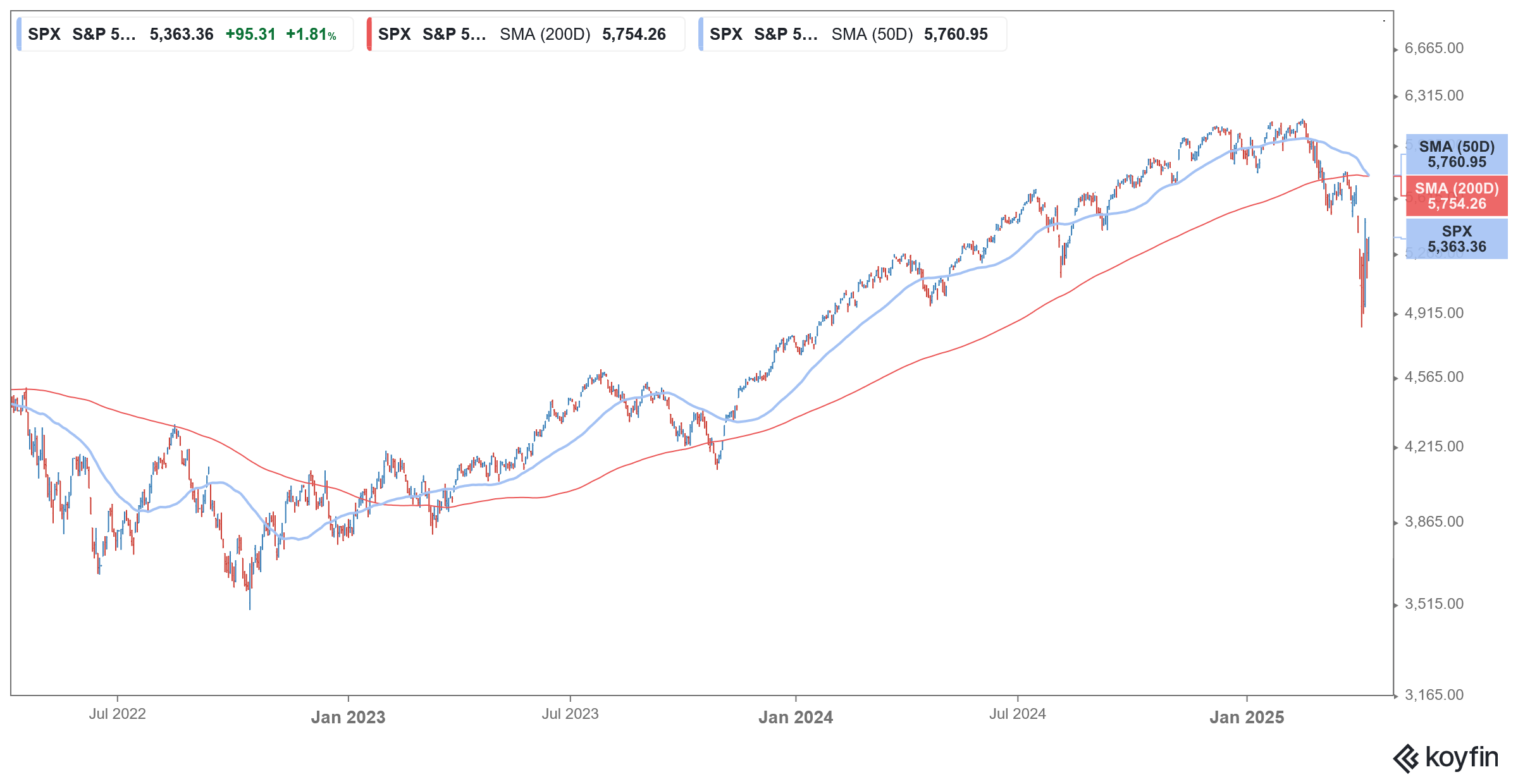
US President Donald Trump has imposed a 25% tariff on finished vehicles and another 25% tariff on imports of many auto parts, which will take effect on May 3. These tariffs are in addition to the levy on steel and aluminium imports that Trump previously announced.
Meanwhile, several Wall Street analysts have become pessimistic about US auto shares after the tariffs, predicting that they will hit carmakers’ sales and profitability.
Analysts downgrade auto shares
Among Ford and General Motors, the latter is particularly exposed to the tariffs on Mexico given its high reliance on imports from that country. Last week, UBS downgraded the share from a buy to neutral while slashing its target price to $51. The brokerage estimates that post the tariffs, the cost of cars that GM imports from Canada and Mexico would rise by $4,300. Similarly, for cars imported from Korea and China, the costs will rise by $6,250.
“Our estimates are reduced to consider the impact of tariffs on the cost structure as well as the impact to auto demand,” said UBS analyst Joseph Spak in his note.
He added, “For now, we assume GM will look to offset about 50% of the cost via price.” According to Spak, “The price increase does not need to be on the vehicle facing the direct tariff impact as GM can use the portfolio to help mitigate.”
Notably, automotive companies have been taking measures to mitigate the impact of tariffs. Ford and Stellantis for instance are offering employee pricing on some models to ease the impact of tariffs on consumers. British luxury carmaker Jaguar Land Rover, which is owned by India-based Tata Motors, has meanwhile stopped shipping cars to the US.
Tariffs are expected to hit US auto sales
Analysts expect US auto sales to fall considerably this year in light of the tariffs with BCG forecasting annual run rate costs between $110 billion to $160 billion. “What we’re seeing now is a structural shift, driven by policy, that’s likely to be long-lasting,” said BCG’s global lead of automotive and mobility Felix Stellmaszek speaking with CNBC.
He added, “This may well be the most consequential year for the auto industry in history – not just because of immediate cost pressures, but because it’s forcing fundamental change in how and where the industry builds.”
Notably, the US automotive industry is quite integrated across the US, Canada, and Mexico. Mexico in particular emerged as a sourcing hub for US automakers who capitalized on the low labour costs. Moreover, Canada and Mexico were part of the NAFTA (North American Free Trade Agreement) and its successor USCMA (United States Canada Mexico Agreement) that Trump negotiated in his first tenure.
Goldman downgrades Ford shares on tariff worries
Amid fears of tariffs eating into automakers’ profits, Goldman Sachs downgraded Ford from a buy to neutral. In its note, Goldman Sachs said, “We believe the tariffs as proposed will raise the cost of both importing and manufacturing vehicles in the U.S. by at least a low to mid-single digit thousand-dollar level on average. It added, “We believe it will be hard for the auto industry to fully pass this on, especially with softening consumer demand more generally.”
Concerns over US economy
Concerns over the health of the US economy have increased after Trump’s tariffs. The tariff uncertainty is taking a toll on consumer sentiment and the mid-month reading of The University of Michigan consumer survey fell to 50.8 in April. The reading was below March’s 57.0 and fell well short of the 54.6 that analysts were expecting.
“Consumers report multiple warning signs that raise the risk of recession: expectations for business conditions, personal finances, incomes, inflation, and labor markets all continued to deteriorate this month,” said Joanne Hsu, the survey’s director.
Tariffs could push the US economy into a recession
Notably, several economists raised the odds of a US recession amid Trump’s reciprocal tariffs. In his annual letter, JPMorgan CEO Jamie Dimon said, “Whatever you think of the legitimate reasons for the newly announced tariffs – and, of course, there are some – or the long-term effect, good or bad, there are likely to be important short-term effects.”
Notably, while announcing a 90-day pause on tariffs, Trump said that he listened to Dimon’s interview wherein he talked about the possibility of a recession due to the tariffs. “He’s very smart and … a genius financially, he’s done a fantastic job at the bank,” said Trump of Dimon.
Meanwhile, while Trump lowered the tariffs on most countries to 10%, he increased the tariffs on China to 145%. However, he has now announced that computers, phones, and chips would be exempt from the tariffs.
Jerome Powell on Trump’s tariffs
Fed chair Jerome Powell has also been cautioning about the repercussions of Trump’s tariffs. Speaking at a business journalism conference in Arlington, Va. Powell said, “Higher tariffs will be working their way through our economy and are likely to raise inflation in coming quarters.”
The Fed chair emphasized, “While uncertainty remains elevated, it is now becoming clear that tariff increases will be significantly larger than expected, and the same is likely to be true of economic effects, which will include higher inflation and slower growth.”
Powell also signaled a wait-and-watch approach to future rate cuts and said, “Inflation is going to be moving up, and growth is going to be slowing, but to me it’s not clear at this time what the appropriate path for monetary policy is going to be. We’re going to need to wait and see how this plays out before we make those adjustments.”


Question & Answers (0)